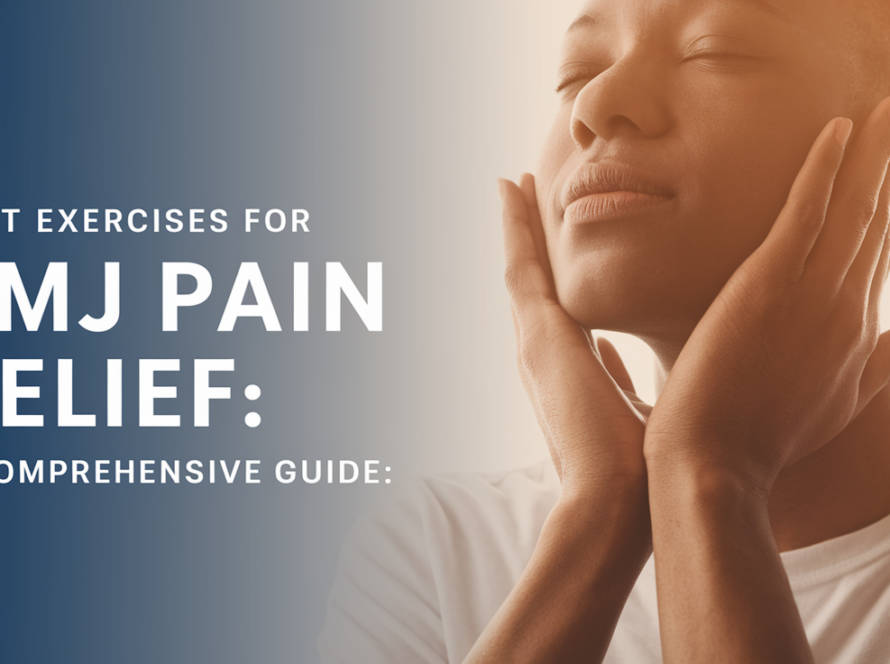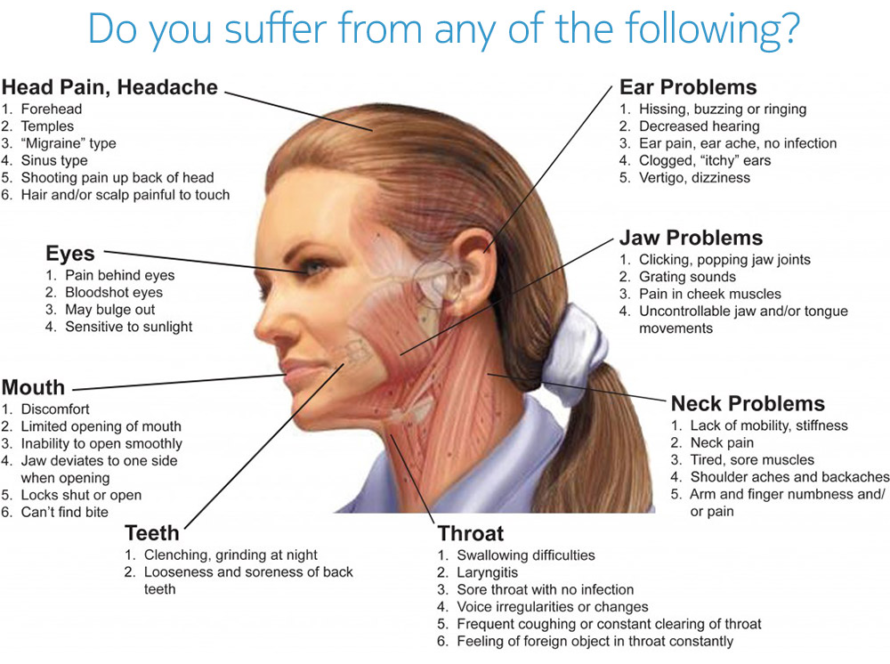Introduction
Stress and anxiety are no strangers to most of us. Whether you’re juggling work deadlines or dealing with personal issues, these emotional states can wreak havoc on your physical and emotional well being. One area that stress and anxiety often affect, but is rarely discussed, is the jaw—specifically, the temporomandibular joint (TMJ). When stress and anxiety become chronic, they can trigger or worsen temporomandibular disorders (TMD), leading to pain and discomfort in the jaw, head, and neck. In this article, we’ll explore the intricate connection between stress, anxiety, and TMJ/TMD, and provide practical tips for managing both.
Understanding TMJ and TMD
What is TMJ?
The temporomandibular joint (TMJ) is a hinge that connects your jawbone to your skull. It allows you to speak, chew, and yawn—basically, it helps you move your jaw in all directions. This joint is located on both sides of your head, near your ears, and plays a critical role in several functions including eating, swallowing, breathing, talking etc. However, when something goes wrong with this joint, it can lead to disorders that cause pain and dysfunction.
What is TMD?
Temporomandibular Disorders (TMD) refer to a group of conditions affecting the TMJ and the muscles that control jaw movement. These disorders can result in jaw pain, headaches, ear pain, limited movement, and even clicking or popping sounds when you open your mouth. While TMD can be caused by various factors like injury or arthritis, stress and anxiety are significant contributors to this condition.
Connection Between Stress, Anxiety, and TMJ/TMD
How Stress Affects the Body
Chronic stress can have a profound effect on your body. One of the ways it manifests is through muscle tension. When you’re stressed, your body activates its “fight or flight” response, causing your muscles to tighten as a protective measure. Unfortunately, this includes the muscles in your jaw, neck, and shoulders. Over time, this tension can lead to TMJ-related issues. Often, there are multiple other areas of discomfort including headaches, poor energy, poor sleep etc.
Anxiety’s Role in TMJ/TMD
Anxiety doesn’t just affect your mind; it impacts your physical well-being too. People with anxiety often clench their jaws or grind their teeth, particularly during sleep—this condition is known as bruxism. This involuntary habit can put immense pressure on the TMJ, leading to pain, inflammation, and further complications. The cascade of events from anxiety to behavior is not always linear; sometimes it is anxiety to poor energy to muscle tension; other times, it is panic attacks leading to muscle spasms.
Physical Symptoms of TMJ/TMD Triggered by Stress
Jaw Pain
Jaw pain is one of the most common symptoms of TMD, often caused or exacerbated by stress-induced tension. You might notice soreness or a sharp pain when chewing, speaking, or even yawning.
Headaches
TMJ disorders often lead to headaches, particularly tension headaches. The pain can radiate from the jaw to the temples, and even the back of the head, making it hard to concentrate or relax.
Bruxism (Teeth Grinding)
Bruxism is a direct result of stress and anxiety and is a leading cause of TMJ dysfunction. Grinding your teeth not only damages your enamel but also puts excess strain on the TMJ, leading to pain and stiffness.
Earaches and Tinnitus
Because the TMJ is located close to the ear, issues with this joint can sometimes cause earaches or even tinnitus (ringing in the ears). There is a neuroanatomic overlap in the ear and TMJ which can also play a role in the mechanism of ear pain stemming from jaw discomfort. Movement of the jaw can make ear symptoms better or worse; change usually implies some association.
The Psychological Impact of TMJ/TMD
Emotional Stress and Anxiety
Pain from TMJ/TMD can lead to emotional stress and anxiety, creating a vicious cycle; the reverse is true also. The discomfort may disrupt your sleep, affect your mood, and make it difficult to focus, all of which contribute to heightened stress levels.
The Feedback Loop Between Pain and Anxiety
The connection between TMJ pain and anxiety is often cyclical. Pain increases anxiety, and anxiety worsens the physical symptoms. Breaking this loop requires addressing both the mental and physical aspects of the problem.
Tips for Managing TMJ/TMD Symptoms
Stress Management Techniques
Meditation and Mindfulness
Meditation can help reduce stress and anxiety, which in turn can ease the symptoms of TMJ/TMD. Practicing mindfulness allows you to become more aware of your body and consciously relax your jaw and facial muscles.
Deep Breathing Exercises
Deep breathing exercises can activate the body’s relaxation response, helping to reduce muscle tension, including in the jaw area.
Physical Therapy for TMJ
Jaw Exercises
Simple jaw exercises can strengthen the muscles around the TMJ, helping to relieve pain and improve movement. These exercises can be done daily to keep your jaw flexible.
Stretching and Posture Correction
Poor posture, particularly slouching, can exacerbate TMJ problems. Gentle neck and shoulder stretches, along with maintaining good posture, can reduce stress on the TMJ.
Dental Treatments
Mouthguards for Bruxism
If you grind your teeth at night, a dentist may recommend a mouthguard to protect your teeth and reduce the strain on your TMJ. These custom-made devices can make a significant difference in preventing further damage.
Lifestyle Adjustments
Reducing Caffeine and Sugar
High levels of caffeine and sugar can increase anxiety, leading to more jaw tension. Cutting back on these stimulants can help manage both anxiety and TMJ symptoms.
Creating a Relaxation Routine
Incorporating relaxation techniques into your daily routine—such as yoga, deep breathing, or even taking regular breaks—can go a long way in managing stress and reducing TMJ discomfort.
How to Prevent TMJ/TMD Triggered by Stress
Creating a Healthy Work-Life Balance
Balancing your work and personal life can reduce the stress that contributes to TMJ/TMD. Set aside time for relaxation and hobbies to avoid overloading yourself.
Getting Professional Help
If stress and anxiety are overwhelming, seeking help from a therapist or counselor can provide valuable coping strategies. Likewise, seeing a dentist or TMJ specialist can help manage the physical symptoms of TMD.
Conclusion
Stress and anxiety can significantly impact your physical health, particularly when it comes to the TMJ. By understanding the connection between stress, anxiety, and TMJ/TMD, and implementing stress-reduction techniques and proper dental care, you can alleviate both the emotional and physical symptoms. Remember, managing stress is not just about feeling better mentally—it’s also about improving your overall well-being, including your jaw health.


